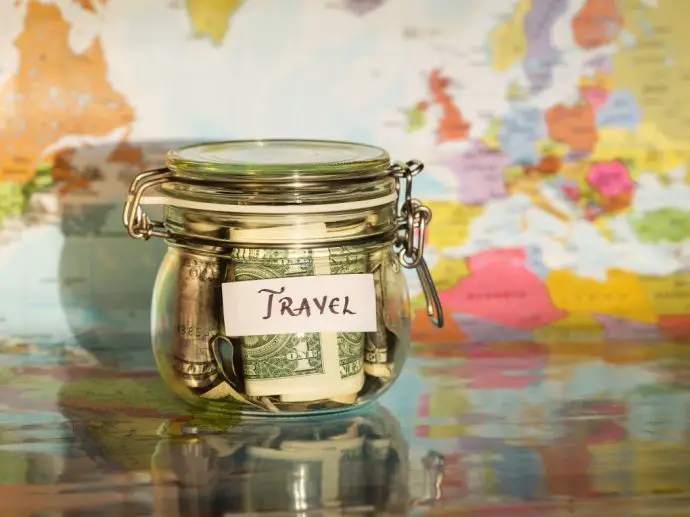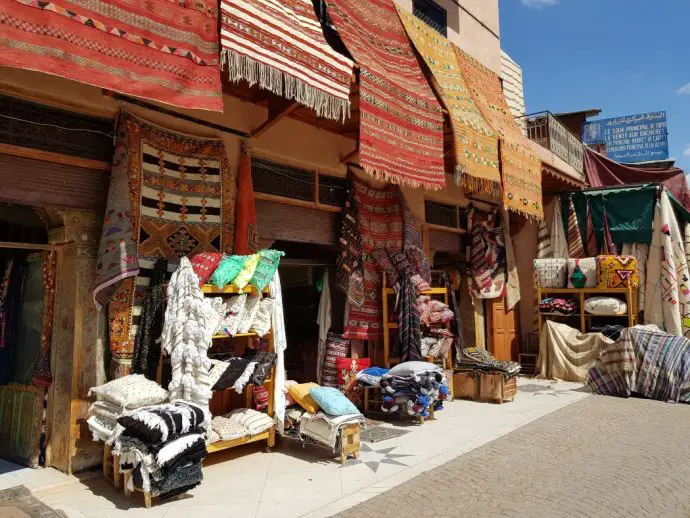Long term travel. We’ve all thought about it, especially over the last year or so whilst we’ve been confined to our own small patches of the planet. Travelling for extended periods has become increasingly popular over the last decade, and as we emerge from a certain world situation, more and more people are going to be heading off into the unknown, making the most of their new-found freedom.
The thrill of packing your life away, and stuffing your rucksack full of essentials to last you a few months, or even years, is something that money can’t buy. The prospect of travelling to far-flung corners of the world, making new friends, and trying new foods can be almost overwhelming. In a good way. Every day you’ll be having new experiences, some good, some perhaps not so great, but all part of the adventure that is long term travel.

Yet whilst the idea is exciting in principle, there is the small matter of funds. How are you going to afford all this time away from home? After all, there’s no point travelling if you can’t enjoy yourself along the way. A lot of people spend years saving up, before jacking in their jobs and hitting the road. Which is great if you have time to plan, and are able to put aside a proportion of your earnings each month. But not everyone has that luxury, and who wants to wait a few years to realise their dream?
How to budget for long term travel
Managing your money is the first step to a life of travel, and without it you won’t get very far. The good news is, you’re probably already a pro when it comes to budgeting, with things like a mortgage, rent, credit cards and other bills to pay each month. Just as being in control of your funds is essential in your everyday life, it’s equally important when considering long term travel.
To finance your new way of life you’ll have to keep a beady eye on your bottom line, and not let it fall below a certain level. Prior to setting off on your adventures, think carefully about the following points so you have the best chance of staying on the road for as long as you want.

Manage your current debts
Before you even start thinking about those sun-kissed beaches and turquoise lagoons, you need to make sure you leave without any debt. Or at least, make sure your current financial obligations will still be taken care of when you’re off on your travels.
Credit cards should all be paid off before you jump on that plane, so you don’t need to be worrying about payments during your trip. See if you can cut down your spending and consider selling material items that you won’t be needing whilst you’re away too, like furniture or clothes.

If you have a mortgage, look into the implications of renting your property out during your absence so you can continue paying off the debt as well as retaining the house. Depending on your remaining mortgage term, you might even make a bit of profit, which will keep you in pina coladas and palm trees for a bit longer. It’s always a good idea to stay on the property ladder if you can, so that you have somewhere to return to when you decide you’ve had enough of travel.
Look at your mobile phone contract and see if you can get something cheaper, or even opt for a sim only deal that works well in the areas of the world where you’ll be travelling. Get rid of all those subscriptions that you don’t really need – you could save a fortune without the likes of Netflix, Prime, and Spotify eating away at your account each month.
For something a bit different, you could even try your hand at stocks and shares to bring in a bit of extra income while you’re travelling. There are lots of apps around that can offer you free shares in the UK so you can dip your toes in the water and give it a go. Just be careful when you’re first starting out, and do get advice to help keep you on track. Start with small amounts until you get the hang of how it works, and never put in more than you can afford to lose.
Keep costs to a minimum
Travel doesn’t have to be expensive, and savvy adventurers can live off relatively little each day with a few simple tricks of the trade. The best thing to do is base yourself in an affordable part of the world, like South East Asia, India, or Africa. Top choices for long term travellers include Morocco, Indonesia, and Thailand. Here, you’ll probably be spending far less on food and accommodation than you do at home, thereby making your money last a lot longer.

Shop at markets for your groceries where possible, to keep costs down and to live like a true local. Avoid buying expensive imported food at supermarkets and you’ll save money as well as discovering a whole new culinary world. Think about entertainment too. Often a sunset stroll along a clifftop beside the sea is just as rewarding as other more costly activities. Prioritise the experiences you want to have, and the rest of the time focus on free things like hiking.
Where possible, don’t opt for luxury transportation like private taxis and flights. Stick to buses, collective taxis, metros and trains – you’ll have a much more immersive experience this way too. If you’re not sure what’s available, ask expats in your adopted community who’ll be sure to help. For local journeys, think about investing in a bike – folding ones can even fit into your luggage – and you’ll soon recoup your initial outlay.
Build a sustainable lifestyle
So you’ve been on the road for 6 months, and are enjoying it so much you want to continue your explorations for longer than you originally planned. If you’ve just been living off savings, this might not be possible. Yet if you’ve taken steps to build a sustainable lifestyle then travelling indefinitely could easily be on the cards.

The best way to secure this type of lifestyle is of course to ensure a consistent stream of income is readily available. Lots of travellers these days are digital nomads – someone who is location independent when it comes to working. Figure out how much you need each month to live, and seek nomadic employment to cover those costs. This could mean working in bars or restaurants if you’re spending a significant amount of time in a single location. Or instead you could find a job that means you could work online, from anywhere in the world. Popular options include copywriting, web design, sales, virtual assistant work, social media management, and teaching. You could also start a blog, writing about your experiences and helping others who are new to long term travel get started on their own adventures. Once established, you can earn passive income from advertising and affiliates which means you’ll have more time to go out and enjoy life. This one isn’t an overnight fix though, so only do this if you’re going to be committed to the initial work involved in setting it all up.
If you follow these guidelines you’ll be well on your way to setting off for a life of long term travel. Things change along the way so don’t be afraid to alter your plans, after all, sometimes just going with the flow is all part of the fun.
Have you travelled long term? Share your top tips with us in the comments.




